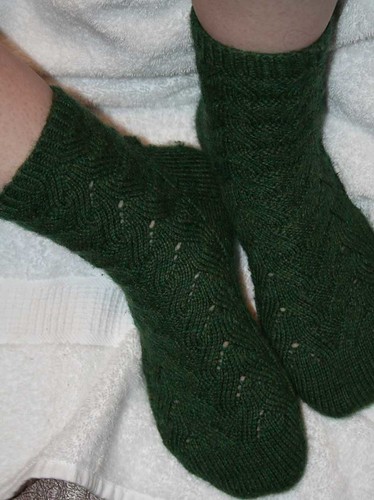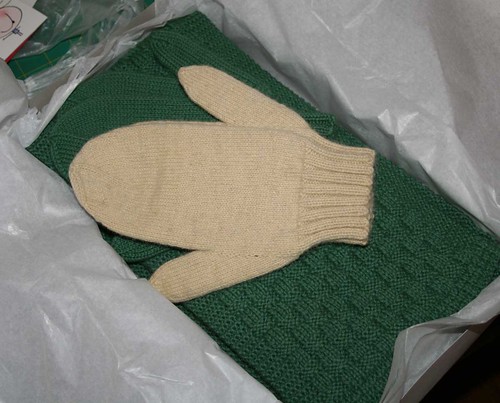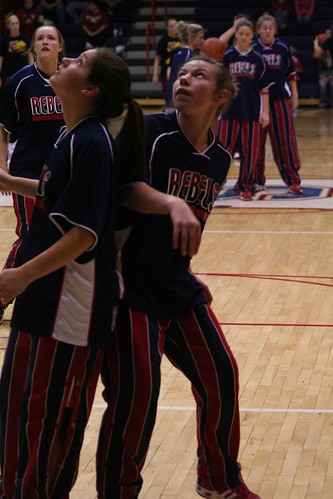I've been dyeing to tell you . . .
. . . literally
I used some of my Christmas money to buy some undyed yarn and some real dye (read: not Kool-aid) to try dyeing some yarn myself. It arrived whilst we were house and cat sitting for mom, so all the pictures are from her kitchen. It has nothing to do with the size or equipment difference between the two - for those of you who might feel inspired to try this sometime - I just needed to be there for the cat who'd recently had surgery. So fear not, it's easy and fun, and if you're not me, not messy at all. I'm a little messy.
So here's how it went. My first attempt was "handpainted" merino doubleknit weight. I bought my yarn from Knitpicks, and the dye as well, for that matter.
So, I gathered my tools: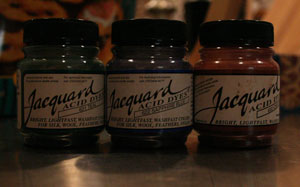
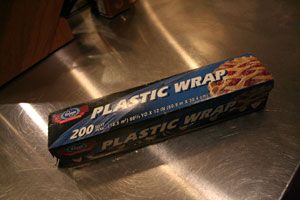

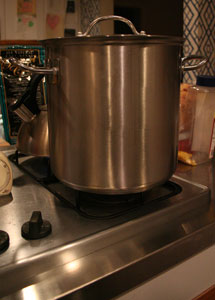
Some acid dyes, plastic wrap, empty pint jars, and a stainless steel pot with a steamer basket. I filled the pot with water and started heating it on the stove. Then I plunked the yarn into a sink full of water.
Once I had worked all of the air out of the yarn, I squeezed enough water out of it to keep it from dripping, and layed it out on some plastic wrap on the counter.
Then I mixed up my dyes: blue, teal, and brown. A tsp of blue and teal, in hot water and 3 tbsp. vinegar. 1/2 tsp of brown, in hot water and vinegar, for a lighter color.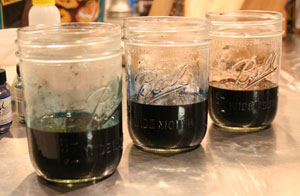
And squirted them onto the yarn in sections, using a small squirt bottle, one color at a time. I left space between the brown and the teal because I didn't think the color they'd produce together would be one I wanted - the dyes spread during the setting process.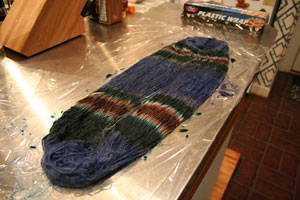
It was in the midst of this process that I began to think that gloves might be smart - acid dyes like these dye protein fibers, skin has protein, ergo they also dye skin. I decided I didn't really want smurf fingers, so I went and found some gloves, right after this happened: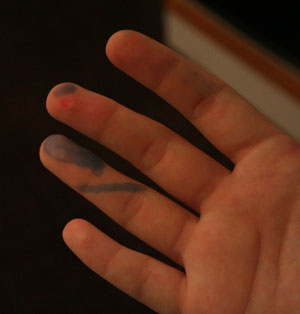
Then I wrapped the yarn up in the plastic wrap and laid it in the steamer basket over boiling water to set the dye. I lined the basket with a couple paper towels, to spare the plastic wrap some of the heat, I'm not sure I needed to, but it didn't hurt anything.
Once it cooled a bit, I rinsed it until the water ran clear, and hung it up to dry in the shower. See how the colors spread and deepened?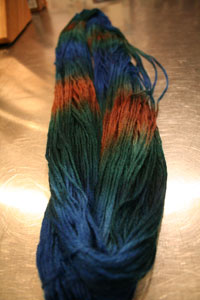
Once it was dry, I wound it into a ball . . .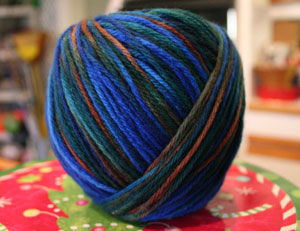
. . . so I could knit these - a pair of Knucks, and now I can type at work and not have cold hands.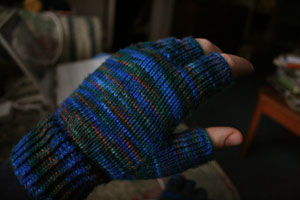
Now that was a 100 g skein, only 52 g of which I used to make the mitts, so I'm trying to figure out what to do with the rest, not sure yet.
Now, there is another way to dye yarn. Which I tried another day. It involves a glass bowl, dye, water, vinegar and a microwave - or if I was doing this at the apartment (sans microwave) a pot on the stove, water, vinegar and dye. But the glass bowl made pretty pictures.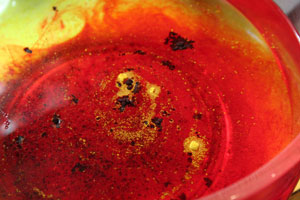
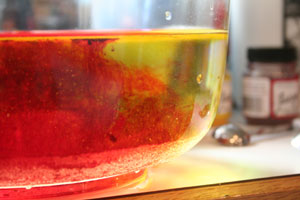
I put the dye powder in the water and vinegar. And thought perhaps that I should stir it, as I didn't want a more tie-dyed look for this yarn.
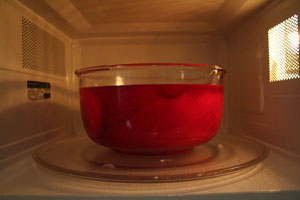
Then I added the wet yarn, and popped the bowl in the microwave, nuking it until the dye was "exhausted," in other words, the water bath was clear, or mostly clear. Then I had to let it rest a long time, because this was also merino, and not superwash. On top of that, it was fingering weight, which is thinner, and more likely to tangle and felt while it was wet. I dyed two skeins, one sort of a peach/salmon color, the second a green/teal mix. These are for lace projects for later. They are dry and sitting on top of the freezer, I haven't gotten a chance to wind them yet.
I dyed a third skein as well - this one superwash - a deep burgundy, for a pair of socks that I've been waiting to make. Aren't they pretty?
So that's what I was dyeing to tell you . . . there will be more - I have 4 more skeins of the merino double knit that I want to handpaint (probably socks, maybe a scarf) and two more skeins of the fingering weight to "pot dye" when I decide on colors.
